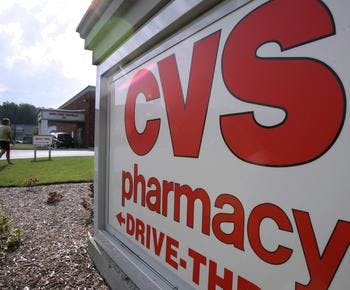By now you’ve probably heard about CVS pharmacy asking its employees to have their doctor complete a voluntary health screening (Health Risk Assessment) by May 2014 or they’ll be required to pay an additional $50 a month for their group health insurance.
Of course, many sources have blown this up by saying that CVS wants to get their hot little hands on employees’ health information so they can start firing unhealthy people.
This is an excellent example of how much the media doesn’t know about group health care by portraying CVS like the big, bad wolf. I’ve already written about this topic, and if you speak with any insurance broker, they’ll tell you that the process of adding a voluntary Health Risk Assessment to a group health plan isn’t new. Nor is this an evil plot by CVS to ransack employee health records so they can fire sick people.
Should companies pay for irresponsible health choices?
Dr. Deborah Peel, a national advocate for patient privacy is quoted saying this process is “technology-enhanced discrimination on steroids.” Huh? Surely Dr. Peel is fully aware that this health information is considered Protected Health Information (PHI) under the HIPAA Privacy Rule.
If you know me, you also know that I’m a bit of an HR rebel and don’t mind calling out Corporate America when humans get mistreated in the workplace. In this case, I’m okay with this decision by CVS because they’re preparing for their own financial survival with the upcoming provisions of health care reform rolling out in 2014. Answer this:
Why should any company be forced to pay for an employee’s irresponsible health choices?
For example:
- Choosing to drive home after happy hour that results in a DUI will ultimately cause auto insurance rates to go up. Should those who choose not to drink and drive pay higher auto insurance premiums than those who do drink and drive?
- Choosing to smoke cigarettes will ultimately cause repeated and ongoing illnesses and doctor visits. Should those who choose not to smoke pay the same medical insurance premium as those who do smoke?
- Choosing not to exercise and eat unhealthy foods can cause obesity that can result in various diseases and increased health issues. Should those who choose to take care of their body pay the same medical premium as those who don’t take care of themselves?
It’s about personal responsibility
It’s no secret that America is unhealthy and we are all paying for it. We have an obesity epidemic with one out of every three adults being obese.
In an attempt to attack this, First Lady Michelle Obama launched the well-known “Let’s Move” program to combat childhood obesity. New York’s Mayor Michael Bloomberg was unsuccessful in trying to ban sodas over 16 ounces from being sold. The reason was because this is considered an issue of “personal responsibility.”
But what if there isn’t any personal responsibility? Will a hit in the wallet entice people to be responsible? Who knows. But to borrow Einstein’s words “Insanity: doing the same thing over and over again and expecting different results.”
What is certain is that our society cannot continue on this unhealthy and expensive path.
Rant over. Back to CVS.
The Health Risk Assessments that are issued to employees are done by a third party — not the employer, the insurance carrier or the insurance broker. The content and health information is never shared — with anyone.
Is the carrot a better approach here?
So the notion that CVS will have access to this information and use it to fire unhealthy workers is ridiculous. The third party companies who administer this process aren’t interested in getting involved in litigation and take precautions to ensure this medical information stays protected — as they should.
But here’s where the challenge lies: can the assessments be formulated in a way to determine if someone’s poor health is due to bad choices or just bad DNA?
I reached out to a good friend and colleague, Bill Stedman, who is a producer with benefits management company Trion. He agreed that the Health Risk Assessment would only be the tip of the iceberg to address this issue. To get more accurate information, the process would need to evolve to a blood draw to take the health assessment further.
During our conversation, Bill raised another good point. Instead of charging employees more for not completing the health assessment, why not charge them less for completing the assessment? Trion is working diligently to keep clients informed of each new provision and how it impacts organizations and employees.
Overall, we agreed that the worlds of group employer insurance and individual employee health will be colliding in a very intricate way over the upcoming months and years.
Are you ready?
This was originally published on Kimberly Roden’s Unconventional HR blog.
